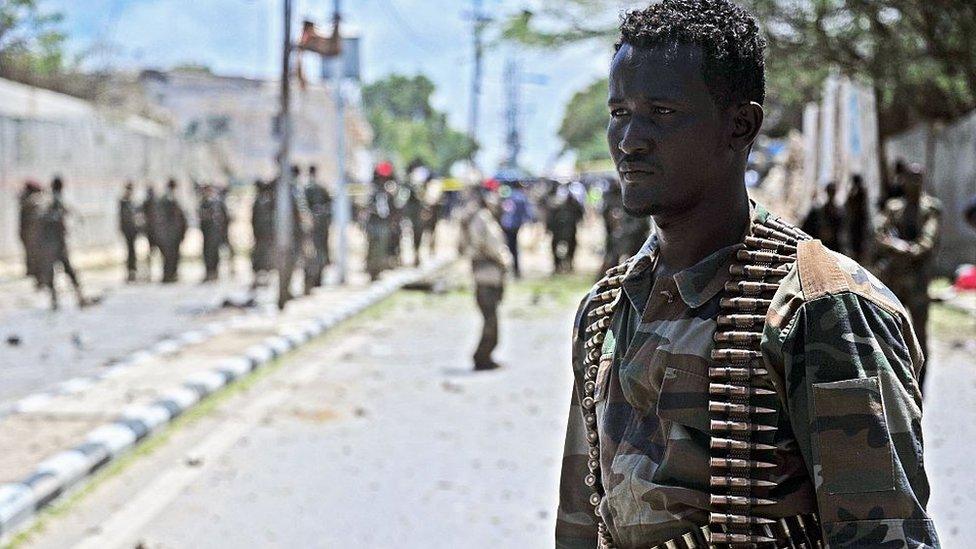Mogadishu truck bomber sentenced to death
- Published
Bulldozers clear the site of the Mogadishu truck bomb
Somalia's military court has sentenced a man to death for his role in the country's deadliest bombing last year, in which at least 500 were killed.
Hassan Adan Isaq was accused of leading an al-Shabab unit said to have carried out the truck attack in the capital Mogadishu on 14 October 2017.
During the trial, the 23-year-old had denied any involvement.
Another suspect was sentenced in absentia to life in jail, while a third man received a three-year prison term.
It is a rare case of a high-profile investigation leading to a suspect being convicted for an attack in Somalia, the BBC's Africa security correspondent Tomi Oladipo reports.
He says the bombing in Mogadishu prompted public outrage at al-Shabab for its perceived role as the perpetrator, and at the government for failing to prevent the attack.
What happened in the attack?
The truck exploded at a busy junction, destroying hotels, government offices and restaurants.
But it remains unclear whether the junction was the intended target or whether the driver detonated the explosives because suspicions about the vehicle had been raised.
It blew up next to an oil tanker, which intensified the blast.
More than 150 of the victims were burned beyond recognition after the huge explosion.
Hundreds of people were injured, and many of them were later flown to Turkey, Sudan and Kenya for treatment.
Officials blamed the Islamist al-Shabab group, allied to al-Qaeda. But the group denied any involvement in the attack.
How did Somalis react?
Mogadishu residents held mass protest rallies, blaming the authorities for failing to prevent the attack.
Many wore red cloth around their foreheads to show solidarity with the victims.
"The bandana represents the blood of my people killed in the blast," one protester said.
While another demonstrator said: "We will never forget [this]".
Medical student Maryam Abdullah died a day before her graduation
The crowds were also calling for unity in a country torn by decades of conflict.
A 22,000-strong African Union force (Amisom) is deployed in Somalia trying to help the government recapture territory from al-Shabab, whose fighters are active in much of rural southern regions.
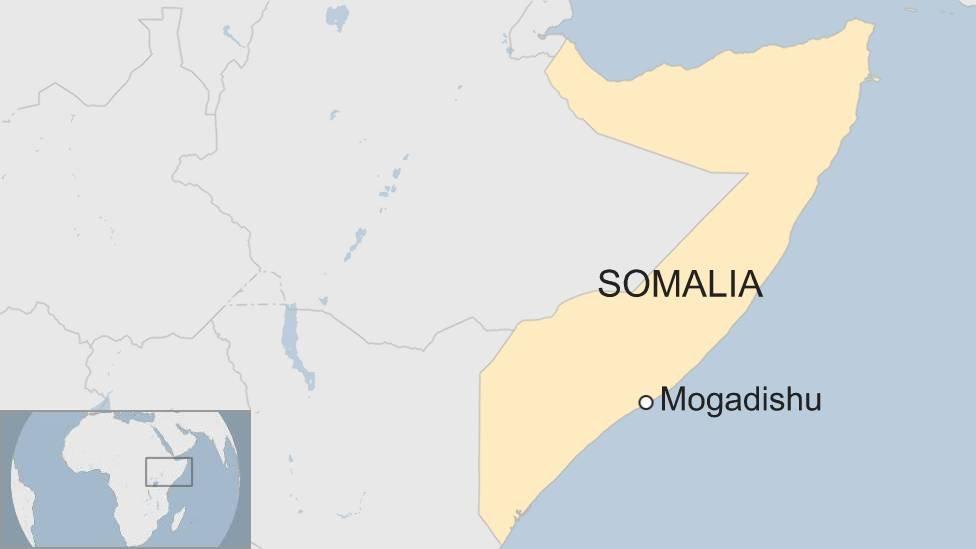
- Published18 October 2017
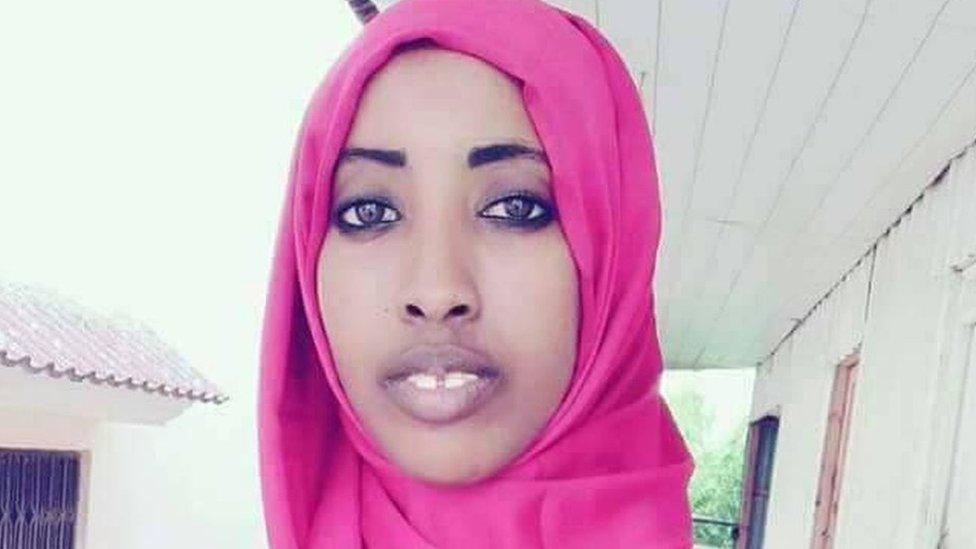
- Published22 December 2017
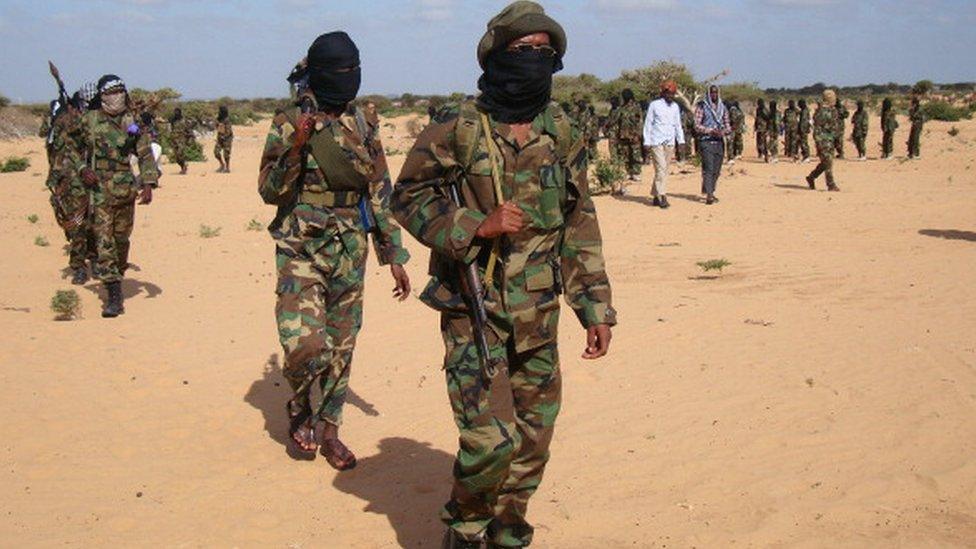
- Published20 October 2017
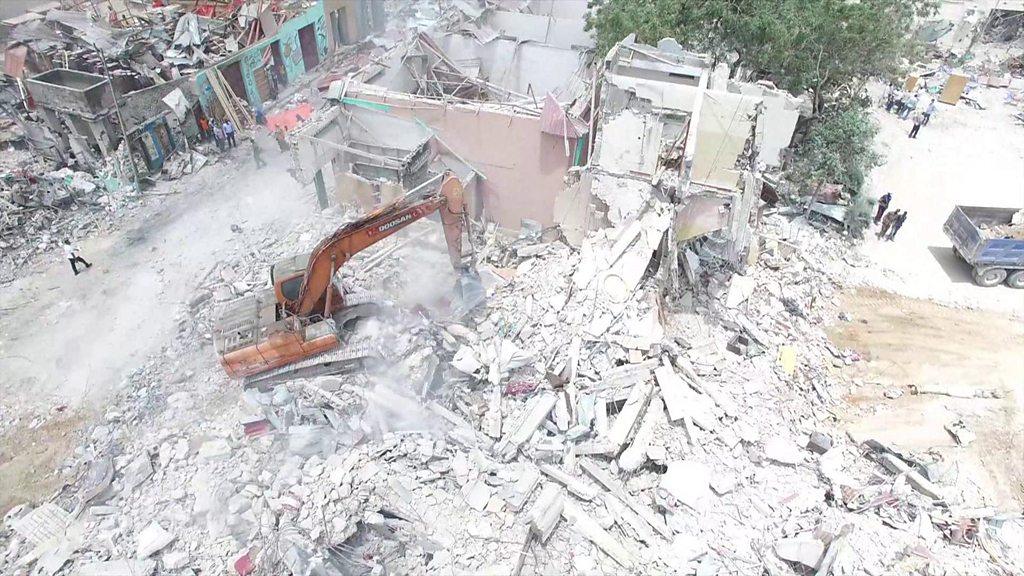
- Published11 May 2017
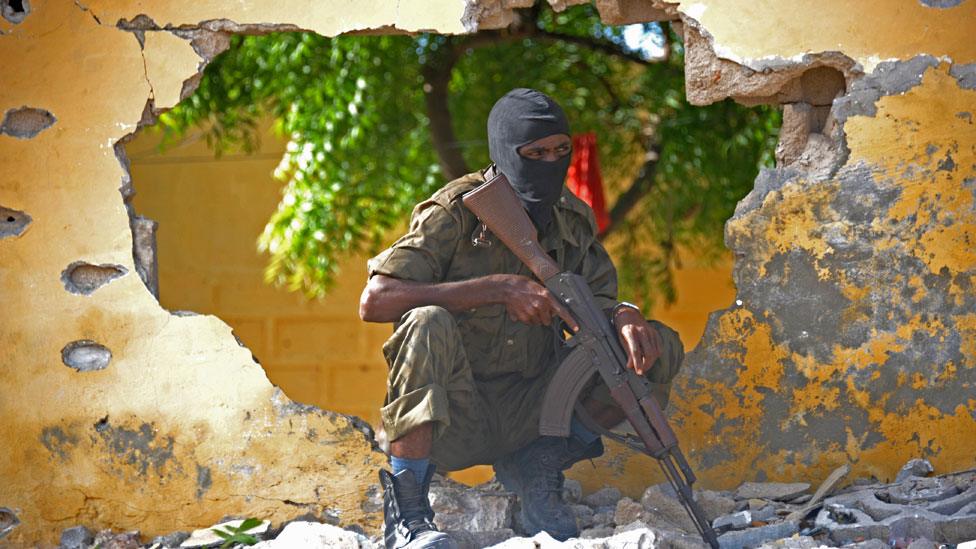
- Published19 October 2016
